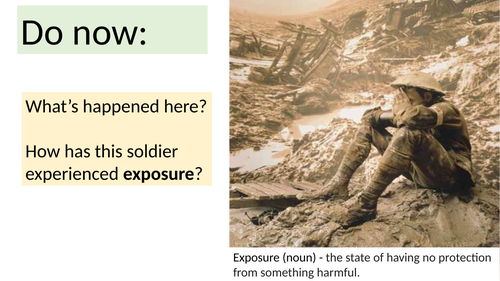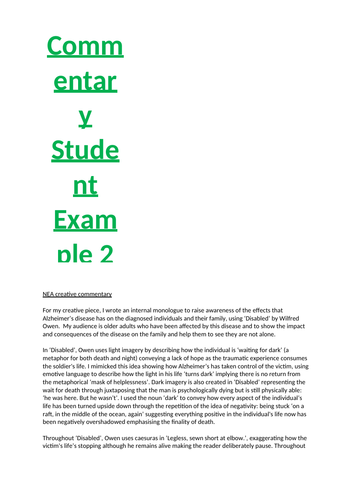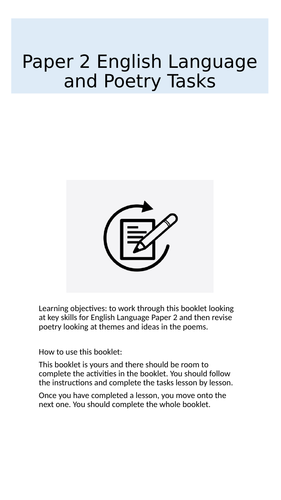
50Uploads
4k+Views
3k+Downloads
All resources

KS4 Literacy Booklet 1 AQA Style (details of contents in description)
Here is a 30 page Key Stage 4 Literacy Booklet which is designed for intervention for low ability KS4 students or in class use (there is lined paper to answer questions embedded). The exam board is AQA and this booklet is in the STYLE of this at the end. Below is what is in the booklet for you:
The booklet begins with students:
revising punctuation
identifying word classes
going over inference skills
And then the students have a quiz to recap what they have done. The booklet then continues with:
extract and language focus questions
quote exploding some quotations with language features
language focus question
comprehension skills on a Harry Potter extract
language match up table expanding language features
reading activities choices page
Then the booklet moves to:
more AQA style questions giving an overview of paper 1 and paper 2
Great Expectations by Charles Dickens focus by practicing paper 1 questions 1, 2 and 5
Extract from Jane Eyre and then tasks to follow with paper 1, questions 1, 2 and 5 focus
Then a final vocabulary gathering activity
My students found this helpful and communication with parents/carers was great over this. We started it in Year 10 and then went back to bits in Year 11.

x8 Lessons Crime Poetry Peter Grimes by George Crabbe AQA A Level
Here are 8 lessons on Peter Grimes for A Level (annotating will have taken place within these lessons as well). There are a range of PowerPoint slides and worksheets to be completed (either in class, independent study or homework). The lessons focus on lines 1 - 153 with having looked at and annotated lines 1 - 200 in terms of annotating.
When teaching this poem for the first time, I found that if I concentrated and took it slowly up to line 153, the class could then feel confident about continuing their own annotations in small groups/pairs and then feeding back to one another.

AQA A Level English Literature The Murder of Roger Ackroyd Crime x9 page Revision Task Booklet
Included in this booklet is:
Tasks and information on introduction and plot with quotations
Direct quotations that link to the crime elements
Key information on setting, characters, plot and themes/crime elements
Revision task ideas - specific to the novel
Chapter by Chapter summary of the novel
More quotations that could link to the investigation, revelations and the plot
Responding to an interpretation for the novel
Each section has tasks on them and these are for teaching or revision purposes. My Year 12 class found very useful before the mock exam and they will take this into Year 13. It has helped focus our attention on certain elements and chapters moving forward as well.

Literacy Booklet 1 - Term 1 2023
This booklet has been designed for KS3 (or maybe KS2) students to recap certain skills to cement their knowledge. This was designed for students struggling with skills for in class intervention and for homework.
There are a range of activities in this booklets like recapping adjectives, verbs, vocabulary, nouns and self-assessment at the end.

Key Stage 5 Othello Homework + Independent Work Booklet
This booklet has been designed to assist Year 12/13 own learning at Key Stage 5 with Othello. The outline of tasks are below and I have found this has really pushed students within themselves and I have seen the embedding of research and completing of these tasks within their essay writing. This booklet is for Act 1 only.
AND it does include the annotations of all of Act 1 for students (or teachers) to catch up on if needed. These are screenshot and uploaded on a separate PDF for students.
Instructions for students on page 1:
Each week you will be set a homework and then you will also be set an independent study piece of work for you to complete in your study periods. Both of these are important as they will assist your reading, discussion and annotations within lesson, and these ideas should be brought together for when we complete an essay.
There are scanned pages on a PDF document of the annotated parts of the Act 1 of Othello. If you have missed a less/been away, you must ensure you complete your annotations to keep up to date.
CONTENTS:
Page 2 – Week 1 Homework – Vocabulary, response to quotes (past exam questions) and Act 1, Scene 1 recap tasks
Page 3 – Week 1 Independent Study – Racial stereotypes & introduction to jealousy, trust and betrayal
Page 4 - Week 2 Homework – Othello & Brabantio speech comparison
Page 5 – Week 2 Independent Study - Iago’s soliloquy analysis
Page 6 - Week 3 Homework – Mini-essay question Othello presented in Act 1, Scene 3
Page 7 – Week 3 Independent Study – Colridge critic response to Iago, race & themes
Page 8 - Week 4 Homework - Feminist Critical Perspectives
Page 9 - Week 5 Homework – Post-colonial Critical Perspectives

Literacy Booklet Autumn 1 2024
An updated version of the Literacy booklet - lots of activities within the booklet to assist students with literacy.
These I have used for a couple of years now to support students in what they should be doing day-to-day. They can be used stand alone, to support lessons or as a small task to break lessons up.
Pages 3-4: Capital letters
Pages 5: Using full stops
Pages 6-7: Capital letters and full stops
Pages 8-9: Nouns
Pages 10-11: Adjectives
Page 12: Verbs
Page 13: Improving your vocabulary
Page 14: Self-assessment after using the booklet

Exposure Poetry Low Ability Lesson
This lesson goes through the poem for a low ability group. It has activities about the soldier’s feelings, an overview of the poem and then some focused quotation analysis linking to technique finding and why Owen will have written it.
Students enjoyed this lesson before going into more detail later on in the year.

Author Study - Jewell Parker Rhodes Ghost Boys, Black Brother
A quick literacy task on finding information on Jewell Parker Rhodes - author of Ghost Boys and Black Brother, Black Brother.

x9 Lessons The Murder of Roger Ackroyd Agatha Christie AQA Scheme A Level Crime Spec B
Attached is approximately a 9 lesson scheme for the teaching of The Murder of Roger Ackroyd by Agatha Christie.
There is also an 11 page revision booklet that takes students through key quotes linking to the crime genre, key character quotes, general quotes and all have tasks underneath them. The booklet also includes specific revision tasks linking to the crime genre, the investigation and Christie’s authorial intent and it also has activities on the back that link to the overview of the text.
Some lessons were substituted by reading and annotating the novel, and some lessons were PowerPoint based and some were worksheet based. After the first few chapters, the worksheets assist the analysis of chapters with clue or misdirections and there are some articles to read to analyse Christie’s writing and her lifestyle, considering how these affected the planning and writing of TMORA.

Kamikaze Poetry Low Ability Lesson
Adapted Kamikaze poem for my low ability sets.
Quote sheets and questions in the PPT - those slides will need to be printed off.

A Christmas Carol & Macbeth Walking Talking Mock TOP SETS
These two PPTs go through how to teach top set students (to be delivered in a hall of set 1s and set 2s) how to adapt their writing ensuring they are focusing on expanding their ideas. Not only does this allow students to explore ideas linking them together, but it also gives them an introduction and first paragraph.
It should be noted that these will not be able to be replicated perfectly in the exam, but they should aim high to be able to recreate what they need to in order to gain the top marks.

AQA A Level English Literature When Will There Be Good News & TMORA Revision x12 Page Booklet
This booklet was designed for my students to think about section B or C in Paper 2 and then consider section C and comparing When Will There Be Good News and The Murder of Roger Ackroyd. The 12 page booklet contains information and tasks for the students to complete. The booklet contains:
A brief summary of WWTBGN
Chapter by Chapter task
Key quotations from WWTBGN chapter by chapter
Central theme in WWTBGN
Comparison of WWTBGN and TMORA
Links between crime elements in both WWTBGN and TMORA
There are multiple tasks to consider as students work through the booklet and my students found this very helpful for their mock exams and exams as they found it focused their attention more.

AQA Power & Conflict Poetry London - William Blake Low Ability Lesson
A low ability lesson for Year 10 when starting to teach power and conflict poetry. Mine liked it due to the videos that aided the lesson.

Literacy Booklet 2 - Term 2 2024
This is the SECOND booklet in my Literacy series!
It has been designed for KS3 (or maybe KS2) students to recap certain skills to cement their knowledge. This was designed for students struggling with skills for in class intervention and used for homework. It does mention Literacy Booklet 1 (available from my store).
There are a range of activities in this booklets like: types of nouns, finding the different types of nouns, making inferences, finding evidence (quotes), adverbs, improving vocabulary and self assessment at the end.

Key Stage 5 Enrichment Preparing for University Booklet
This booklet has been created to be used alongside a PowerPoint (which can be made from this booklet) or on its own. It contains a lot of information for Key Stage 5 or college students on what to do and expect when preparing to live independently.
Sections include:
Before you leave
When looking at halls of residence or renting
Cleaning and Hygiene matters
Saving on Utilities
Medical Matters
Duvet Togs Explained
Finances: basic information about which ID to need, a student account, ISA and savings account
Planning Meals
Laundry Labels
Top student accounts 2023/2024 ready for research
The sections include personal help and experiences alongside hints and tips of what to do to prepare and begin living away from home.
It was made to be used for a Key Stage 5 Enrichment programme once a fortnight and the feedback has been that it has proved very useful alongside a lesson and research with students being able to ask questions.

AQA A Level English Language NEA Commentary Lesson
This lesson is designed to assist A Level English Language students on preparing to write their commentary element for their coursework. The PPT should be introduced over two lessons and have examples of a commentary attached to it (I have included two examples from my students from previous years).
The lesson should be printed (certain slides should be) for the students to follow and assist their own levels of analysis.
To plan, get the students to have a look at the language levels that link together then create paragraphs analysing them referencing the style model as they go.
My biggest tip would be to get students to write paragraphs based on the language levels first, and then see if they can piece together the essay with those paragraphs. My students seem to discuss the style model too much to begin with, rather than analysing their own work referencing the style models.
Hope this helps!

Child Language Acquisition Introduction Lessons 1-5
A skeleton resource to assist with the introduction of teaching CLA to Year 12 students. It goes through a combination of phonemes and graphemes to ensure that they understand how a child is introduced to both. The first lesson also enables the students to reflect on their own personal experiences of learning which they found very useful and understood how their learning impacted them on later life.

Key Stage 4 Cover Booklet (Low Ability 6 Lessons)
This is 6 lessons worth of a cover booklet focusing on Key Stage 4 AQA English Language Paper 2 and Poetry Tasks. This was set for a low ability group so there may be more than 5 lessons attached.

Implicit and Explicit Information Edexcel GCSE Introduction
An introduction lesson into explicit and implicit information for the Edexcel GCSE. Written for a set 4 group with a plenary of A Christmas Carol revision at the end.

Two Reading For meaning Extracts and Questions
I started Reading for Meaning worksheets with my Year 10 students (high ability) to get them analysing what other writers do and why.
The questions should be scaffolded and they take the students through some ideas about the writer.




















